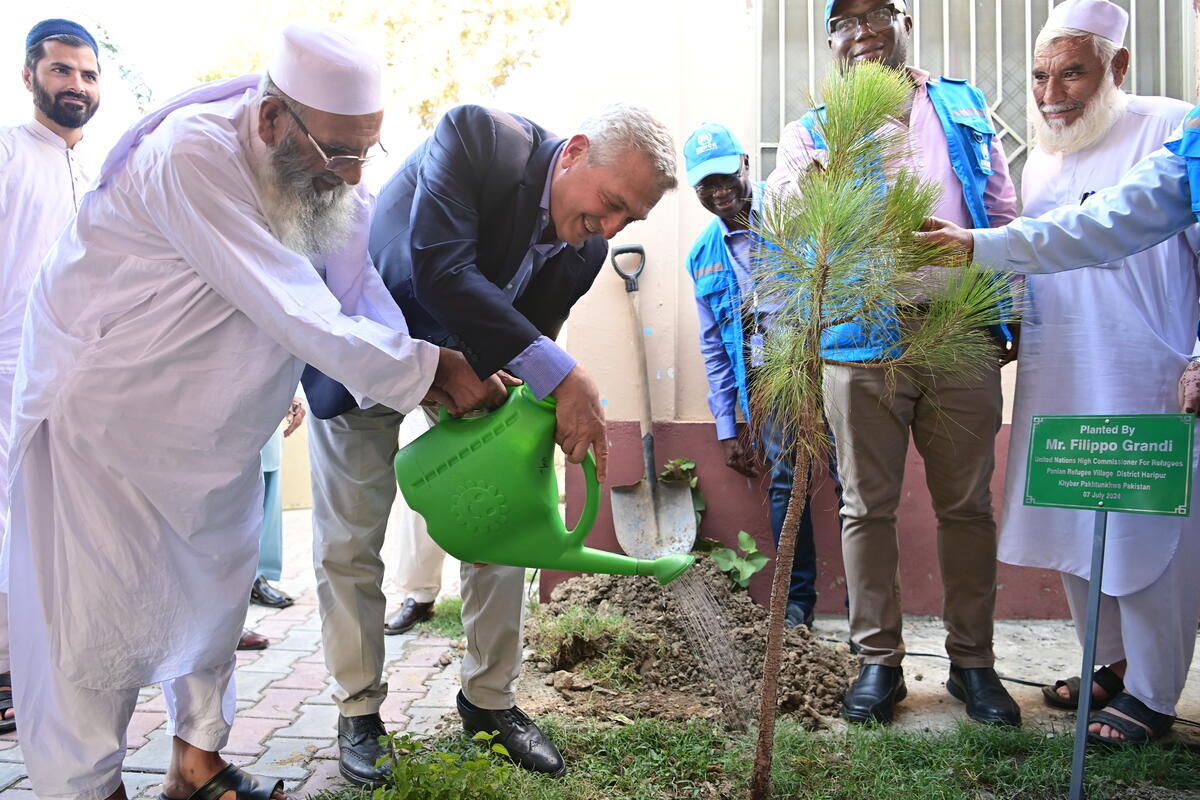UNHCR closes makeshift refugee camp on Pakistan border
UNHCR closes makeshift refugee camp on Pakistan border

CHAMAN, Pakistan, July 22 (UNHCR) - The wait is finally over for thousands of Afghans stranded for the last 18 months at a makeshift site on the Pakistani-Afghan border. The site, commonly known as the "Chaman waiting area", was closed today after its last remaining residents left for a new settlement inside Afghanistan.
On Tuesday, the last group of 391 Afghans was transferred from the Chaman waiting area, right on the Pakistani-Afghan border, to Zhare Dasht, near the southern Afghan city of Kandahar. They left behind ragged, home-made tents and a maze of mud walls that were immediately flattened by the Pakistani authorities.
This final group joined more than 10,000 Afghans who had been moved to Zhare Dasht over the last few weeks, as well as another 7,000 who had chosen to be relocated there last year.
A separate group of more than 7,800 people who had been confined to the waiting area opted to move to Mohammad Kheil camp in Pakistan, while only 32 chose to return to their home areas in Afghanistan.
The Chaman waiting area came into being as an unofficial site where Afghans gathered after fleeing the war to unseat Afghanistan's Taleban rulers in late 2001. Some of the earlier arrivals subsequently managed to penetrate deeper inside Pakistan. However, in February 2002, when the Pakistan government sealed the border to prevent a further influx, some 26,000 Afghans were left stranded at Chaman - unwilling to go home, and unable to seek proper asylum in Pakistan.
The Chaman waiting area was always considered unsuitable for a refugee camp, because of its insecurity, proximity to the border and lack of basic facilities - particularly water. The security issue was highlighted in June when 22 bodies of fighters killed in a clash with Afghan government troops were dumped in the waiting area.
In addition, the Pakistani authorities did not allow the UN refugee agency to provide full assistance, because they wished to prevent the settlement from becoming a permanent refugee camp. The generally poor living conditions at the site were compounded by its location, which was exposed to dust storms and searing 40° Celsius temperatures in summer, and bitterly cold winds in winter.

In May this year, the governments of Pakistan, Afghanistan and UNHCR agreed to close the waiting area by the end of July.
Of the Afghans who fled the war against the Taleban, more than 120,000 are still hosted in six camps - including Mohammad Kheil - in Pakistan's western Balochistan province. The country as a whole still hosts around a million Afghan refugees in official camps or settlements, with an unknown number of them living in urban areas.
UNHCR has helped some 220,000 Afghans return home from Pakistan so far this year, in addition to the more than 1.5 million returnees it assisted in 2002.








